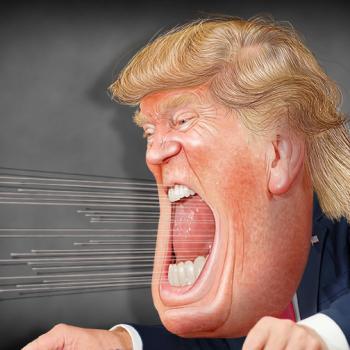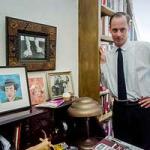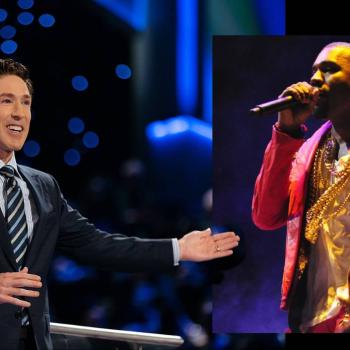1) Consider preparing the place where the Sacraments will be celebrated. If possible and necessary, tidy up a bit.
2) Consider preparing a sick call table (or altar). Most commonly such a table included at least a candle. Preferably, there is a cross and two candles. A small glass of water is helpful since the sick person sometimes has trouble swallowing the host and a little water can help. A spoon is helpful if the person has a hard time sitting up to drink the water. A napkin of some sort can help if the person spills any water when drinking or gets their face wet. If the priest is going to anoint the sick person it may be helpful to have some cotton balls for him to wipe his fingers. If he does use them, they are later to be burned. The picture above also shows bread and lemons to help the priest purify his fingers after anointing but these are rarely necessary and should not be supplied unless the priest asks for them ahead of time.
3) Sick call kits containing many of these implements are available through Catholic catalogues.
4) If possible and advisable, have the sick person awake and aware that the sacraments are about to be celebrated just prior to the arrival of the priest, deacon, or extraordinary minister.
5) Be sure that when the priest, deacon, or extraordinary minister arrives, the television, radio, etc., are off and that other unnecessary conversations and activities in the house are ended.
6) In the past it was customary for someone to meet the priest at the door with a candle. This was done out of reverence for the Blessed Sacrament. This can still be done today and is a wonderful way to teach others of the sacredness of the moment.
7) It is preferable to have all the members of the household prayerfully aware of what is taking place. If the room is large enough they can be encouraged to pray along. It may be necessary for some brief privacy while a priest hears confession, but otherwise members of the household can and should join in prayer. It is certainly inappropriate for loud conversations to be taking place in the next room, for children to be playing video games, and for any unnecessary activities to be taking place. It is to be hoped that even non-Catholics be respectful of the sacred rites, as they most often are. Usually just a word of invitation and encouragement is all that is needed.
8) It is best for the priest, deacon, or extraordinary minister to celebrate the rites right away. Surely a greeting and an inquiry of health are appropriate. But long conversations prior to the reception of Sacraments are inadvisable. After the celebration of the Sacraments, longer and cordial conversations can take place. It is sometimes the case that the priest, deacon, or extraordinary minister has other stops to make and, after the rites, is still carrying the host with them. In such a case it is not wrong to have conversation with the sick person, as this is an act of charity. However, one ought to balance the fact of the presence of the Blessed Sacrament and the need for conversation with prudence and reverence. Staying for lunch and lengthy chatty visits is discouraged in such cases.
9) Reverential prayer and celebration of the rites is also necessary for those who bring communion.
10) Those who bring communion to the sick should go straightway to them and not stop at stores. It is best to drive in silence, pray, or listen to religious music rather than secular radio in carrying the Blessed Sacrament.
Feel free to add to these recommendations in the comments and make necessary distinctions. Remember all of this is not possible all the time. This piece is offered in hopes of provoking thought and discussion on the question of reverence in sick calls, and the suggestions are made more as gentle reminders than polemical pronouncements. I do not assume that any one intends to be irreverent. It is just that we have become very casual these days and reminders seem opportune.
Msgr. Charles Pope is the pastor of Holy Comforter-St. Cyprian, a vibrant parish community in Washington, DC. A native of Chicago with a bachelor's degree in computer science, his interest in the priesthood stemmed from his experience as a church musician. He attended Mount Saint Mary's Seminary and was ordained in 1989. A pastor since 2000, he also has led Bible studies in the U.S. Congress and at the White House in past years. This piece first appeared in the group blog of the website for the Archdiocese of Washington and is reprinted with permission.




